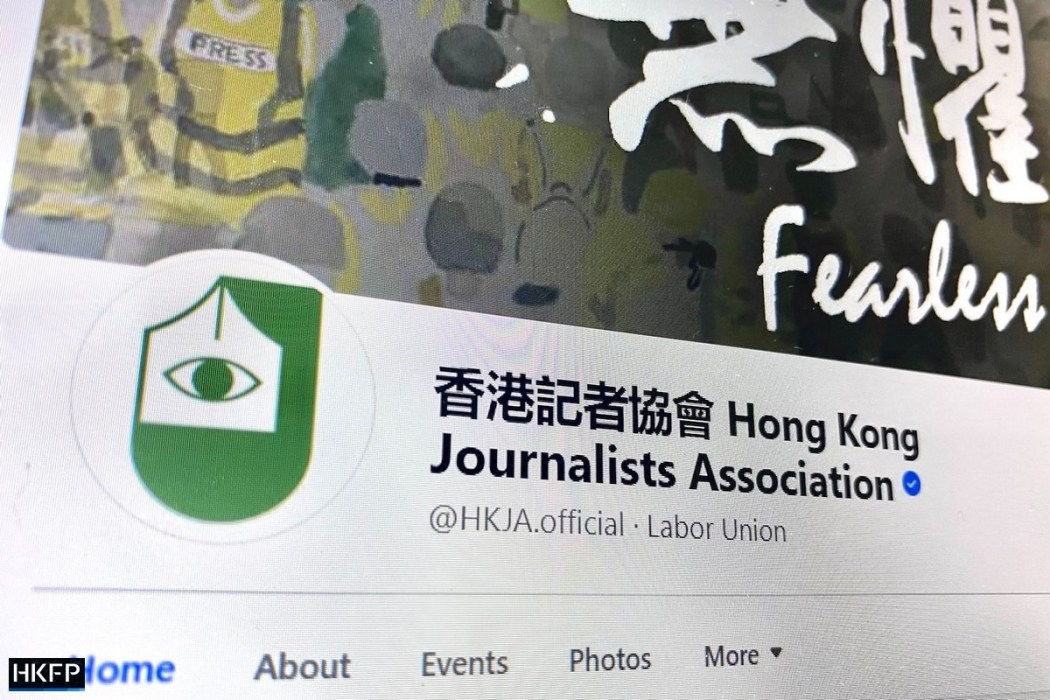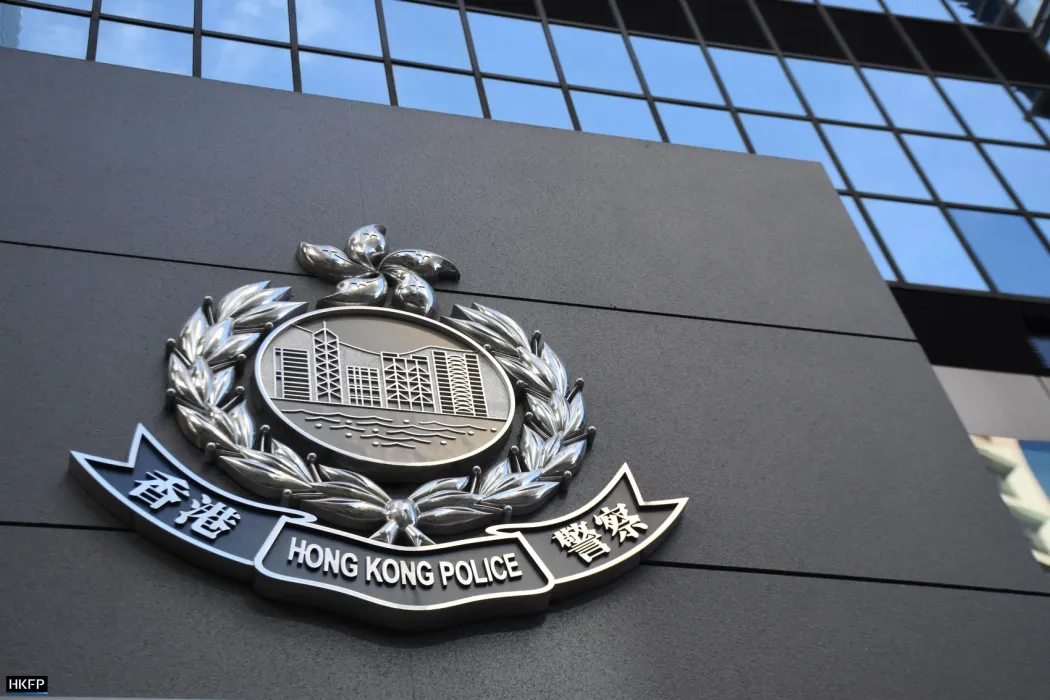Hong Kong’s largest journalists group has said it received several recent reports of journalists being tailed, as police slammed the group over “unverified speculations” that those following journalists were suspected of being members of law enforcement.
The police response came after the Hong Kong Journalists Association (HKJA) statement on Monday saying that the group had received reports from “different media outlets and journalists” about reporters being followed by unidentified men last week.

Apart from the incident where an HKFP court reporter was followed from her home to her workplace last week, HKJA said several journalists from other outlets had said two men attempted to follow them after the Stand News trial last Tuesday.
According to the HKJA, the men had waited outside the press room at District Court. The journalists making the allegation said that the pair had shown their credentials to the court security guard.
One of the men stayed outside the press room for more than an hour, and a reporter told the HKJA that he had attempted to follow them as they left the courtroom.
HKJA also said that the reporters had said they suspected the men were plainclothes law enforcement officers “based on their behaviour and outfits.”
The group said it was “very concerned” about instances of reporters being tailed.
“When the personal safety of journalists, especially court reporters, is under risk, it will make members of the public, and Hong Kong citizens including HKJA concerned about press freedom, worry that someone is attempted to use threatening means to harm the exercise of reporters’ right to newsgathering,” HKJA’s statement read.
“It does only harm, and absolutely no good, to the city’s press freedom.”

The group also said it had reached out to the police and Judiciary to confirm whether the two men were members of law enforcement, and if there had been any operations against reporters in recent days.
“If the men were not law enforcement officers, HKJA urges the police to investigate and follow up on the matter seriously… in order to ensure that journalists in Hong Kong can exercise the freedom of speech, expression, and of the press as protected by Article 27 of the Basic Law without worrying about their personal safety when gathering news.”
‘Unverified speculation’
In a public letter to HKJA, the police said that had yet to receive any reports about the incident involving the two men at the District Court.

The police also said they “express deep regret” and “strong discontent” over HKJA’s “unverified speculations.”
“As for [HKJA] making unverified speculations citing journalists’ suspicions that those following them were law enforcement officers, apart from harming the reputation of all law enforcement officers, it also destroys the professional image of journalists of making reports and comments based on facts,” the police response to the HKJA read.
The police said they will continue to facilitate the media to “professionally and safely” conduct journalistic work, and that journalists should carry out their professional duty and make “accurate and fair” reports.
The force also urged HKJA to “avoid publishing unverified and inaccurate reports and commentaries that could misguide people.”
Support HKFP | Policies & Ethics | Error/typo? | Contact Us | Newsletter | Transparency & Annual Report | Apps
Help safeguard press freedom & keep HKFP free for all readers by supporting our team

LATEST FROM HKFP
HKFP has an impartial stance, transparent funding, and balanced coverage guided by an Ethics Code and Corrections Policy.
Support press freedom & help us surpass 1,000 monthly Patrons: 100% independent, governed by an ethics code & not-for-profit.










